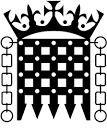
UK Government to rethink draft oil security bill
The Business, Energy and Industrial Strategy (BEIS) Committee has today published the Government’s response to the Committee’s Downstream Oil Resilience Bill report.
The Committee welcomes the Government’s response to its November 2021 report, after the BEIS Department said it would act on a number of its recommendations. The Government agreed to “the thrust of the Committee’s recommendations” and committed to consider how to narrow some of the key powers in the bill which the Committee found to be “unusually and unacceptably broad”.
The Government also committed to giving the Committee a role in scrutinising directions and financial assistance that the Government may issue to the sector, including where there may be concerns around commercially sensitive information.
Commenting on the Government’s response, Darren Jones, Chair of the BEIS Committee, said:
“I welcome the Government’s commitment to take on board the Committee’s recommendations and the need for continued Parliamentary oversight of the use of the new powers proposed.
“This will ultimately improve the Bill and ensure ministers will be successful should they need to use these powers in future. We look forward to seeing the amended bill in due course.”

Background – BEIS Committee report, Downstream Oil Resilience Bill, published 12th November 2021
The Committee’s report was supportive of the Government’s draft Downstream Oil Resilience Bill and its intention to enable ministers to take pre-emptive action to protect fuel supplies in the event of severe market volatility. Such volatility could occur during the UK’s transition to cleaner forms of energy in order to achieve net zero. The Committee supports the Government’s use of such powers to ensure an orderly transition to net zero, but its report warned that the bill’s powers were “unusually and unacceptably broad”.
The new powers contained in the bill cover four main areas:
- Direction Power – where the BEIS Secretary could issue companies with directions, for example, to send fuel supplies to areas or industries where they are most needed
- Information Power – to require companies to provide officials with financial information if there are concerns that a company is facing insolvency and that this could disrupt petroleum supply chains
- Spending Power – to enable ministers to provide direct financial assistance to companies, for example, to help them comply with a direction
- Control Test Power – to ensure that any person or company taking control of critical infrastructure in the sector will have appropriate financial and operational measures in place to prevent unsuitable investment prejudicing UK fuel supply resilience
The Committee’s report recommended that the Government’s intention for how the Bill will be used should be explicitly explained on the face of the Bill. It also noted concern at the breadth of some of the proposed powers and recommended that the Bill be revised to narrow its scope.
The report argued that despite the Government’s assurance that these powers would be used as a “backstop” or “last resort”, the draft bill included “no such qualification” on its face.
The Committee also said the draft Bill contained too much “vagueness” regarding how the Direction and Information powers would be used.
The Committee’s inquiry was undertaken at the BEIS Department’s request, as part of a formal process of pre-legislative scrutiny of the draft Bill.


